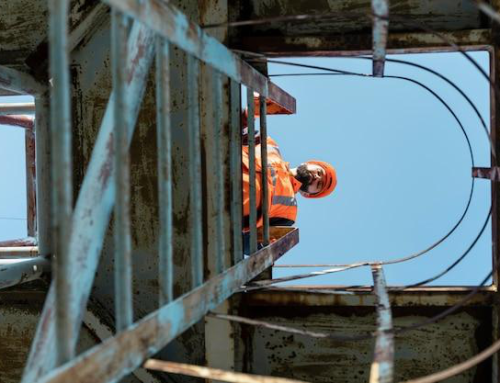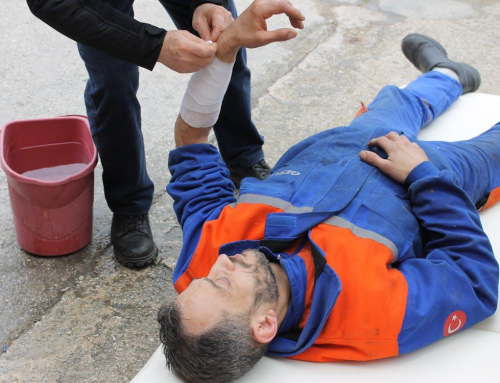In today’s fast-paced world, emergencies can happen at any time, and the ability to respond quickly and effectively can make the difference between life and death.
Cardiopulmonary Resuscitation (CPR), Health Care Provider (HCP) level training, and Automated External Defibrillator (AED) skills are crucial for anyone who might find themselves in a position to save a life. However, knowing these skills once is not enough.
Regular recertification is essential to ensure proficiency and confidence in life-saving techniques.
Let’s have a closer look into why maintaining your CPR-C/HCP/AED skills through regular recertification is vital and how Metro Safety Training can be your partner in this life-saving journey.
The Importance of CPR-C/HCP/AED Skills
CPR-C refers to the standard level of CPR training suitable for the general public, including basic CPR and AED use. HCP, or healthcare provider-level training, is more advanced and designed for professionals in the healthcare industry.
AED training is critical as it teaches individuals how to use a defibrillator, a device that can restart a heart during sudden cardiac arrest.
Understanding the Impact of Immediate Response
In cases of cardiac arrest, every second counts. The chances of survival decrease by 10% for each minute that passes without intervention. Properly performed CPR can double or triple a victim’s chance of survival.
AEDs, when used correctly and promptly, can significantly increase survival rates. Having these skills and the confidence to use them correctly can turn a bystander into a lifesaver.
Why Recertification Matters
Now that we’ve established the importance of CPR-C, HCP, and AED skills, let’s delve into why recertification is necessary.
It’s not enough to learn these skills once; regular refreshers ensure that individuals remain proficient, confident, and prepared to act swiftly and correctly when emergencies arise.
Skill Degradation Over Time
Studies have shown that CPR and AED skills begin to degrade as soon as six to twelve months after initial training. Without regular practice and refreshers, even trained individuals can forget critical steps or lose confidence in their ability to perform these life-saving techniques.
Recertification ensures that skills remain sharp and that individuals are up-to-date with the latest guidelines and best practices.
Changes in Guidelines and Techniques
Medical guidelines and recommendations for CPR and AED use are continually evolving based on the latest research. The Heart and Stroke Foundation, for instance, updates its guidelines regularly.
These updates can include changes in compression techniques, the rate and depth of chest compressions, and the use of AEDs. Recertification courses provide the most current information and practices, ensuring that individuals are performing life-saving techniques correctly.
Building Confidence and Reducing Anxiety
In an emergency, confidence is key. Regular recertification helps individuals build and maintain the confidence needed to act swiftly and effectively. Knowing that you have recently refreshed your skills can reduce anxiety and hesitation, leading to a more effective response during critical situations.
Benefits for Employers and Employees
Beyond the obvious personal benefits of maintaining CPR-C, HCP, and AED skills, there are significant advantages for employers and employees.
Organizations that prioritize regular recertification see improvements in workplace safety, regulatory compliance, and overall employee morale. Let’s explore these benefits in detail.
Workplace Safety
For employers, having staff trained in CPR-C/HCP/AED is a significant safety asset. In industries where employees work with heavy machinery, in high-stress environments, or public-facing roles, the likelihood of encountering a medical emergency is higher.
Trained employees can respond effectively, potentially saving lives and reducing the severity of incidents.
Compliance with Health and Safety Regulations
Many industries are required by law to have personnel trained in first aid and CPR. Regular recertification ensures that companies remain compliant with these regulations, avoiding potential fines and legal issues.
It also demonstrates a commitment to employee safety and well-being, which can improve workplace morale and loyalty.
Enhanced Public Image
Companies that invest in CPR-C/HCP/AED training and recertification for their employees can enhance their public image. It shows that the company values safety and is prepared to handle emergencies.
This can be particularly important for businesses in the hospitality, education, and public service sectors, where public trust and confidence are paramount.
Industries That Benefit the Most
While every industry can benefit from having employees trained in CPR-C, HCP, and AED use, some sectors have a more immediate need.
We’ll take a closer look at the specific industries where these skills are particularly vital and how regular recertification can make a significant impact.
Healthcare
For healthcare professionals, maintaining CPR-C/HCP/AED certification is not just beneficial; it is often mandatory. Nurses, doctors, paramedics, and other healthcare workers must be able to respond to emergencies both in and out of clinical settings. Regular recertification ensures they are always prepared.
Construction and Manufacturing
These industries are high-risk environments where accidents can happen. Having employees who are regularly recertified in CPR and AED use can significantly improve response times and outcomes in case of an emergency.
Education
Teachers, school administrators, and staff members interact with large groups of students daily. Children are prone to accidents, and schools must be prepared to handle emergencies. Regular recertification ensures that educators can provide immediate and effective care when needed.
Hospitality and Public Services
In the hospitality industry, staff members often interact with large numbers of people. Restaurants, hotels, and event venues can all benefit from having employees trained and recertified in CPR and AED use.
Similarly, public service workers, including police officers and firefighters, need these skills to respond to emergencies effectively.
The Role of Metro Safety Training
Understanding the need for and benefits of recertification leads us to the practicalities of maintaining these critical skills.
Metro Safety Training offers comprehensive courses that cater to a variety of industries and scheduling needs, ensuring that everyone can stay prepared.
Let’s examine how Metro Safety Training can help you and your organization remain proficient in CPR-C, HCP, and AED skills:
Comprehensive Training Programs
Metro Safety Training offers a range of CPR-C/HCP/AED courses tailored to meet the needs of various industries. Their comprehensive training programs are designed to provide both initial certification and regular recertification, ensuring that individuals and teams are always prepared to respond to emergencies.
Experienced Instructors
The instructors at Metro Safety Training are experienced professionals with a deep understanding of the latest guidelines and best practices. They provide hands-on training, practical scenarios, and personalized feedback to ensure that participants gain the confidence and skills needed to perform CPR and use AEDs effectively.
Flexible Scheduling and Customized Courses
Understanding the demands of different industries, Metro Safety Training offers flexible scheduling options to accommodate busy work schedules. They also provide customized training programs tailored to the specific needs of your company, ensuring that the training is relevant and effective.
Supporting a Culture of Safety
By partnering with Metro Safety Training, companies can foster a culture of safety within their organization. Regular recertification and training sessions not only keep skills sharp but also emphasize the importance of preparedness and quick response in emergencies.
This culture of safety can lead to a more supportive and vigilant work environment where employees look out for each other and are ready to act when needed.
Maintaining your CPR-C/HCP/AED skills through regular recertification is crucial for anyone who may find themselves in a position to save a life.
The degradation of skills over time, changes in medical guidelines, and the need for confidence and preparedness all highlight the importance of staying current with your training.
For employers, having a workforce that is regularly recertified in these life-saving skills can improve workplace safety, ensure compliance with regulations, enhance public image, and foster a culture of safety.
Invest in your safety and the safety of those around you by partnering with Metro Safety Training. Our comprehensive and flexible CPR-C/HCP/AED courses ensure that you and your team are always prepared to respond effectively in emergencies.
Plus, we also offer first aid level 2 training, confined space training, and fall arrest training in Surrey, Vancouver, Coquitlam, and the rest of the BC. Whether you are in healthcare, construction, education, hospitality, or any other industry, regular recertification can make all the difference.
Don’t wait until it’s too late—schedule your CPR-C/HCP/AED recertification with Metro Safety Training today, and stay prepared to save lives!











